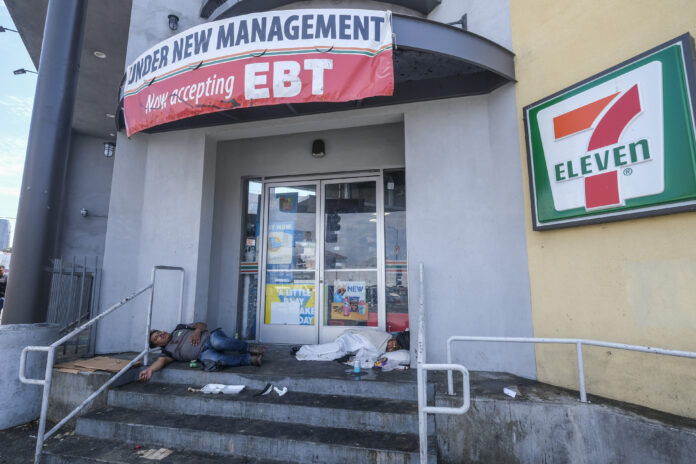Los Angeles is the city of dreams, the home of Hollywood, the land of opportunities. But underneath all its glamour and glitter lies a dirty secret – a currently disgustingly filthy city. This filth is not just an eyesore; it’s a threat to individual business owners and the city.
The first way a disgracefully dirty Los Angeles hurts individual business owners is by driving away potential customers. Imagine walking down a street littered with trash and garbage, with a nauseating stench in the air. Would you want to shop or eat at any establishments on that street? Of course not. This is the reality for many businesses in Los Angeles, especially downtown ones. A recent survey found that over 70% of customers were less likely to patronize a business if the surrounding area was dirty. This means that business owners who are diligent about keeping their establishments clean and presentable are still losing customers due to the filth on the outside streets.
The second way a horribly unclean Los Angeles hurts individual business owners is by lowering property values. No one wants to live or work in a dirty, unsanitary environment. As a result, the property values in areas known for being dirty and neglected often suffer. This means that business owners who own property in these areas may have trouble selling it or be unable to get the full value for their property. It also means that they may have difficulty attracting quality tenants or may have to lower their rental rates to entice people to lease their space.
The third way that grimy Los Angeles hurts individual business owners is by making it harder for them to comply with health and safety regulations. Business owners are required by law to maintain a clean and sanitary environment for their employees and customers. However, this can be difficult when the streets outside are covered in trash and human waste. For example, a restaurant may receive a citation for having a rodent infestation, even though the rodents are coming from the nearby alleyway. Similarly, an office building may have trouble passing a fire inspection if the trash in the parking lot is blocking fire exits. These problems can be costly to fix and can result in fines or even the closure of the business.
One of the biggest problems is the impact on tourism. Los Angeles is a major tourist destination, with millions of visitors annually. However, these visitors are not likely to return if they are met with dirty streets, overflowing trash cans, and unsanitary conditions. This hurts not only the businesses that rely on tourism, but also the city as a whole, as tourism is a major source of revenue for Los Angeles. The effects of a filthy Los Angeles extend beyond individual business owners to the city.
Another problem is the impact on public health. Dirty streets can lead to increased diseases and illnesses and a proliferation of pests such as rats and cockroaches. This is not only unpleasant but also dangerous, as these pests can carry diseases that can be transmitted to humans. In addition, the accumulation of trash and debris can create tripping and fire hazards, which can put people at risk of injury or even death.
Finally, a demoralizingly dirty Los Angeles can contribute to a general sense of apathy and resignation among its citizens. When people are surrounded by filth and decay, they are less likely to take pride in their community and more likely to become disengaged from the issues that affect them. This can lead to a vicious cycle where people stop caring about the cleanliness of their city, which in turn leads to even more filth and decay.
In conclusion, a shockingly unclean Los Angeles hurts individual business owners and the city in numerous ways. It drives away potential customers.
Michael Levine is a veteran Los Angeles public relations executive who has represented 58 Academy Award winners and 34 Grammy Award winners. He has written 19 books including “Broken Windows, Broken Business.”

